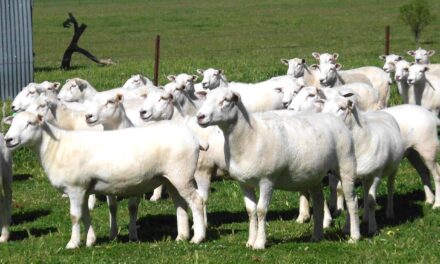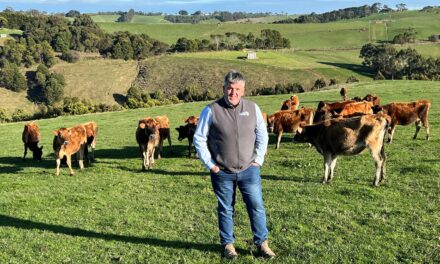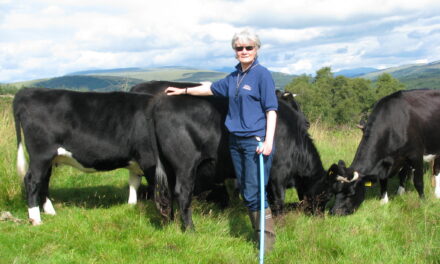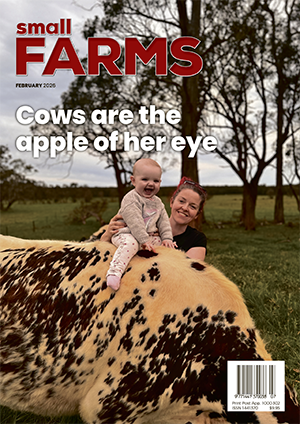Agriculture Victoria is working with Victorian Police to investigate on-farm crime such as stock theft.
The National Livestock Identification System is Australia’s method for identifying and tracking of cattle, pigs, sheep and goats for disease control, food safety and market access purposes.
NLIS uses an electronic ear tag or device, marking each animal with its own, individual identification number.
Agriculture Victoria livestock traceability manager Ben Fahy said all cattle, sheep, goats and pigs must be tagged with an NLIS-accredited tag, device or tattoo before leaving a property.
“While Agriculture Victoria is the lead agency in relation to livestock traceability-related offences and issues, we work closely with Victoria Police when investigating traceability issues that may involve stock theft or possible deception or fraud issues,” Ben said.
Agriculture Victoria and Victoria Police staff are authorised under the Livestock Disease Control Act 1994 as well as the Prevention of Cruelty to Animals Act 1986.
Ben said Victoria Police has defined farm crime liaison officers who offer expertise and interest in agriculture matters and on-farm crime, including stock theft issues.
“Officers of both agencies undertake regular joint training in relation to the National Livestock Identification System and the use of the database, which provides excellent data when there are alleged theft cases or fraud and deception cases involving livestock.
“Agriculture Victoria and Victoria Police regularly share information in relation to traceability and movements in the livestock sector and work closely in the field where required for current investigations.
“In the last 12 to 18 months, working alongside Victoria Police we have completed some high-profile prosecutions where charges were set under the Livestock Disease Control Act 1994 and the Crimes Act 1958.”
Ben said because of industries’ and governments’ commitment to the NLIS, Australia could provide assurance that livestock selected for specific markets was traceable throughout its life.
“Our access to valuable export markets relies on our trading partners having confidence the livestock they are importing are backed by a robust traceability system and are healthy, disease-free and residue-free,” he said.
All livestock owners or businesses trading in livestock have these obligations under the Livestock Disease Control Act 1994 and Livestock Disease Control Regulations 2017. False or misleading information about the movement of livestock affects both the industry and government’s ability to trace livestock in an emergency disease or food safety incident, or to provide good evidence to trading partners that the origin and ultimately the safety of the livestock product are verifiable.
Working together to track stock








